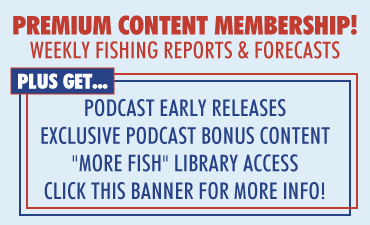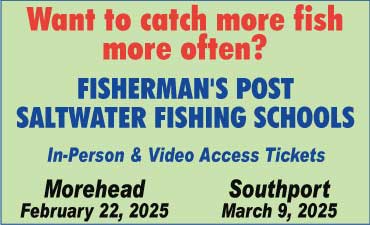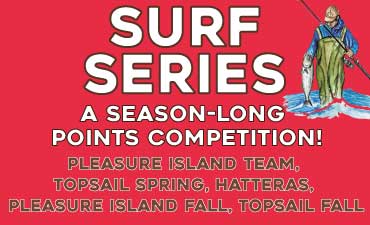Releases June 17, 2010
The N.C. Division of Marine Fisheries is accepting applications for proposals for the 2011 funding cycle from the N.C. Marine Resources Fund.
The fund, which receives proceeds from the sale of Coastal Recreational Fishing Licenses, provides grants for projects that help manage, protect, restore, develop, cultivate, and enhance the state’s marine resources.
Only universities, North Carolina local government entities, the state Division of Marine Fisheries, and Wildlife Resources Commission are eligible to apply. Others must partner with an eligible entity.
Proposals will be evaluated based on the CRFL Strategic Plan for the Conservation and Improvement of North Carolina’s Marine Resources. The plan considers priority research needs identified in fishery management plans approved by the Marine Fisheries Commission, issues identified in the Coastal Habitat Protection Plan, and research needs identified cooperatively with other agencies. The strategic plan can be found on the Division of Marine Fisheries’ website at www.ncfisheries.net/CRFL/index.html.
Projects submitted for this funding cycle should fall under one of three programmatic areas:
Fish—Projects that estimate fishing effort, harvest, and mortality of important coastal fish species, the socio-economic attributes of coastal fisheries, or the characterization of catch and release mortality;
Habitat—Projects that improve the effectiveness of existing environmental programs or that identify, designate, or protect coastal fish habitat;
People—Projects that provide increased access to fisheries resources and enhancement structures or provide better public education and enrichment products.
All proposals must be submitted to the director of the Division of Marine Fisheries by 5:00 p.m. on July 30. Directions for submitting a proposal and an application form can be downloaded from the Division of Marine Fisheries’ website at www.ncfisheries.net/CRFL/index.html. Incomplete applications will not be accepted.
For more information, contact CRFL Project Coordinator Bonnie Jones at (252) 808-8113 or (800) 682-2698. You may also e-mail Jones at Bonnie.B.Jones@ncdenr.gov.
North Carolina law enforcement agencies will again participate in Operation Dry Water on June 25-27, a national weekend of boating sobriety detection and enforcement aimed at reducing alcohol-related accidents and fatalities.
“Operating a recreational vessel while under the influence of an impairing substance or with a blood alcohol concentration of 0.08 or higher is against the law,” said Capt. Chris Huebner, the state boating safety coordinator. “Penalties may include fines up to $1,000 and jail. The greater peril is an accident. More than 20 percent of boating-related fatalities are alcohol related.”
Operation Dry Water is organized by the National Association of State Boating Law Administrators and the U.S. Coast Guard, with leadership for the North Carolina campaign by the N.C. Wildlife Resources Commission and assisted by partner law enforcement agencies.
Wildlife officers are charged with enforcing the boating laws and regulations on the public waters of the state, and they routinely stop vessels for safety checks or violations. The goal of boating regulations enforcement is always safety.
An ongoing Boat Safe, Boat Sober campaign aims to make North Carolina boaters aware of the dangers of intoxication on the water. Drinking, even at levels below legal intoxication, affects the skills necessary to operate any vessel, including: peripheral vision and ability to focus; judgment and rational decision-making; balance and equilibrium; and coordination and reaction time.
During Operation Dry Water, wildlife officers also will remind vessel operators in North Carolina that they now need to be in compliance with the Boating Safety Education Law. As of May 1, 2010, the law requires anyone younger than 26 operating a vessel powered by a 10 horsepower or greater motor to have successfully completed an approved boating safety education course or otherwise be in compliance.
For more information on safe recreational boating in North Carolina, go to www.ncwildlife.org or call (919) 707-0031.
Members of the South Atlantic Fishery Management Council approved an amendment to address overfishing of red snapper and rebuild the South Atlantic stock during its meeting in Orlando. Measures include a continuation of the closure of the red snapper fishery for both commercial and recreational fishermen in federal waters in the South Atlantic and a new area closure off of northeastern Florida and southern Georgia, where fishing for all snapper grouper species in water depths of 98-240 feet would be prohibited.
Fishing for pelagic species such as tuna, dolphin, and billfish would be allowed within the area.
Amendment 17A to the Snapper Grouper Fishery Management Plan was approved by the Council in a split vote (9 to 4) for submission to the Secretary of Commerce. The amendment will undergo further review by NOAA Fisheries Service before submission to the Secretary.
The amendment is designed to meet the requirements of the reauthorized Magnuson-Stevens Act to end overfishing and rebuild stocks within a specified time period.
After reviewing public comment and the management alternatives, the Council modified the area closure for snapper grouper species, reducing the closed area by eliminating much of the previously proposed area off the coast of Georgia. The proposed closure encompasses federal waters where red snapper landings are highest. The area closure is designed to help eliminate release mortality for red snapper that occurs when fishermen target other co-occurring snapper grouper species.
If approved by the Secretary of Commerce, management measures in Amendment 17A will likely be implemented later this year. A new stock assessment is being conducted for red snapper in the South Atlantic, and the results will be presented to the Council in December 2010. The Council will consider adjusting management measures following the stock assessment if warranted.
Information about the meeting is available online at www.safmc.net.
The South Atlantic Fishery Management Council, one of eight regional councils, conserves and manages fish stocks from 3 to 200 miles offshore of North Carolina, South Carolina, Georgia, and east Florida.
The following items are included in CCANC’s 2010 legislative agenda:
HB 1713 seeks a requirement that all fisheries Management Plans have at least a 50% probability of success. This bill will assure future FMPS will have a reasonable chance of being effective in developing and maintaining healthy marine resources. This bill passed the House 116-0 and awaits a hearing in the Senate.
HB 1343 supports legislation authorizing Joint Enforcement Authority for state and federal marine officers. North Carolina would receive federal funds to implement the enforcement, which could be as much as $600,000 per year.
HB 1714 supports a license suspension/revocation system for both commercial and recreational license holders.
HB 1345 supports a prohibition on the use of all commercial fishing gear on or near oyster sanctuaries. This bill makes is unlawful to engage in a commercial operation with the use of commercial fishing gear within 100 yards of an area designated as an oyster sanctuary.
There are three other bills that CCANC is supporting this session:
HB 1710 provides an expedited process for the Marine Fisheries Commission to supplement Fishery Management Plans. This bill has passed the Marine Resources and Aquaculture and Environment and Natural Resources committees. It is scheduled for a vote by the full House.
HB 1712 extends the tax credits for the recycling of oyster shells. This bill has passed the House Marine Resources and Aquaculture Committee and now goes to the House Finance Committee.
HB 1715 authorizes the Marine Fisheries Commission to establish permits for gear for which observer coverage is required. This bill will guarantee that the state complies with its settlement responsibilities from the turtle litigation. This bill has passed the House Marine Resources and Aquaculture and House Finance Committees and now goes to the House floor for a vote.





